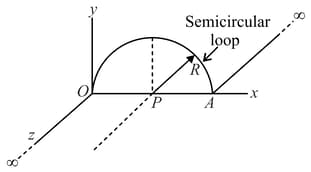Three small spheres and carry charges of equal magnitudes and with signs shown in figure. They are placed at the vertices of an isosceles triangle with the distance between and . The spheres and are held in place but sphere is free to move on a frictionless surface.
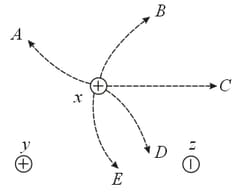
(a) What is the direction of the electric force on sphere at the point shown in the figure?
(b) Which path is sphere likely to take when released?


Important Questions on Coulomb's Law and Electric Field
Two identical point charges having magnitude each are placed as shown in figure. If we place a negative charge (of magnitude and mass ) at the midpoint of charges and displaced along the – axis, examine whether it will perform the simple harmonic motion. If yes, then find the time period of oscillation of the particle.
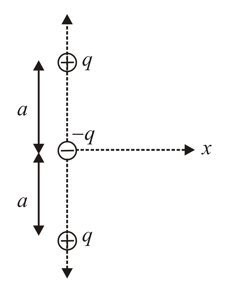
Three points charges of and are kept at the vertices and respectively of an equilateral triangle of side as shown in the figure. What should be the sign and magnitude of the charge to be placed at the midpoint of side so that the charge at remains in equilibrium?
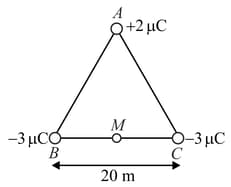
Two small spheres, each of mass , are suspended by light strings of length as shown in the figure. A uniform electric field is applied in the – direction. The spheres have charges equal to and . Determine the electric field that enables the spheres to be in equilibrium at an angle of .
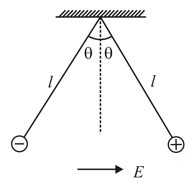
Two pieces of plastic, a full ring and a half ring, have the same radius and charge density. Which electric field at the centre has the greater magnitude? Define your answer.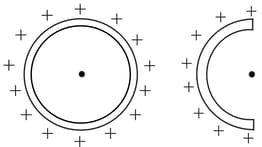
Two semi-circular wires and , each of radius , are lying on and planes, respectively, as shown in the figure. If the linear charge density of the semi-circular parts and straight parts is , find the electric field intensity at the origin.
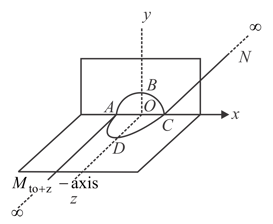
An infinite wire having linear charge density is arranged as shown in the figure. A charge particle of mass and charge is released from point . Find the initial acceleration of the particle (at ) just after the particle is released.
